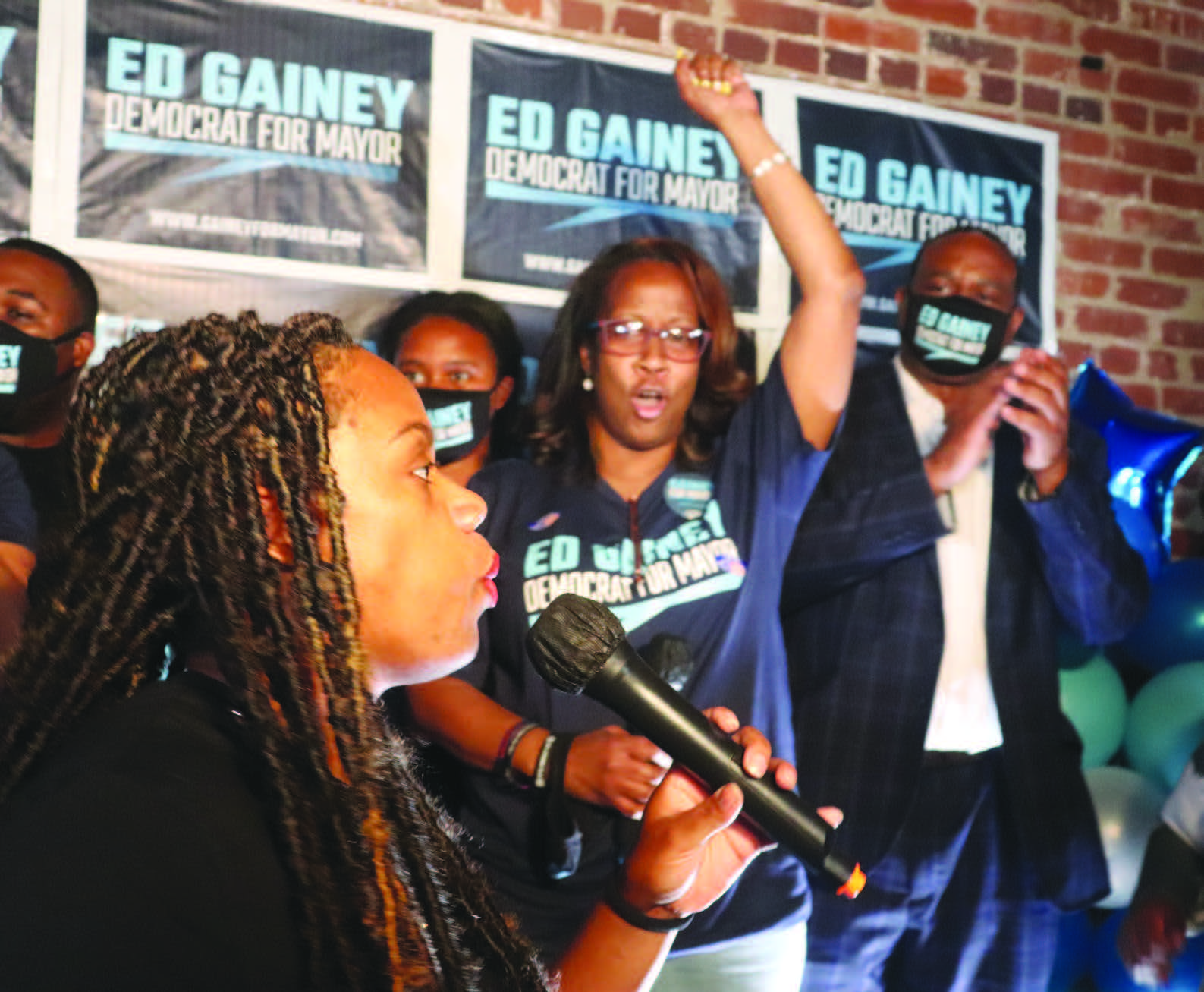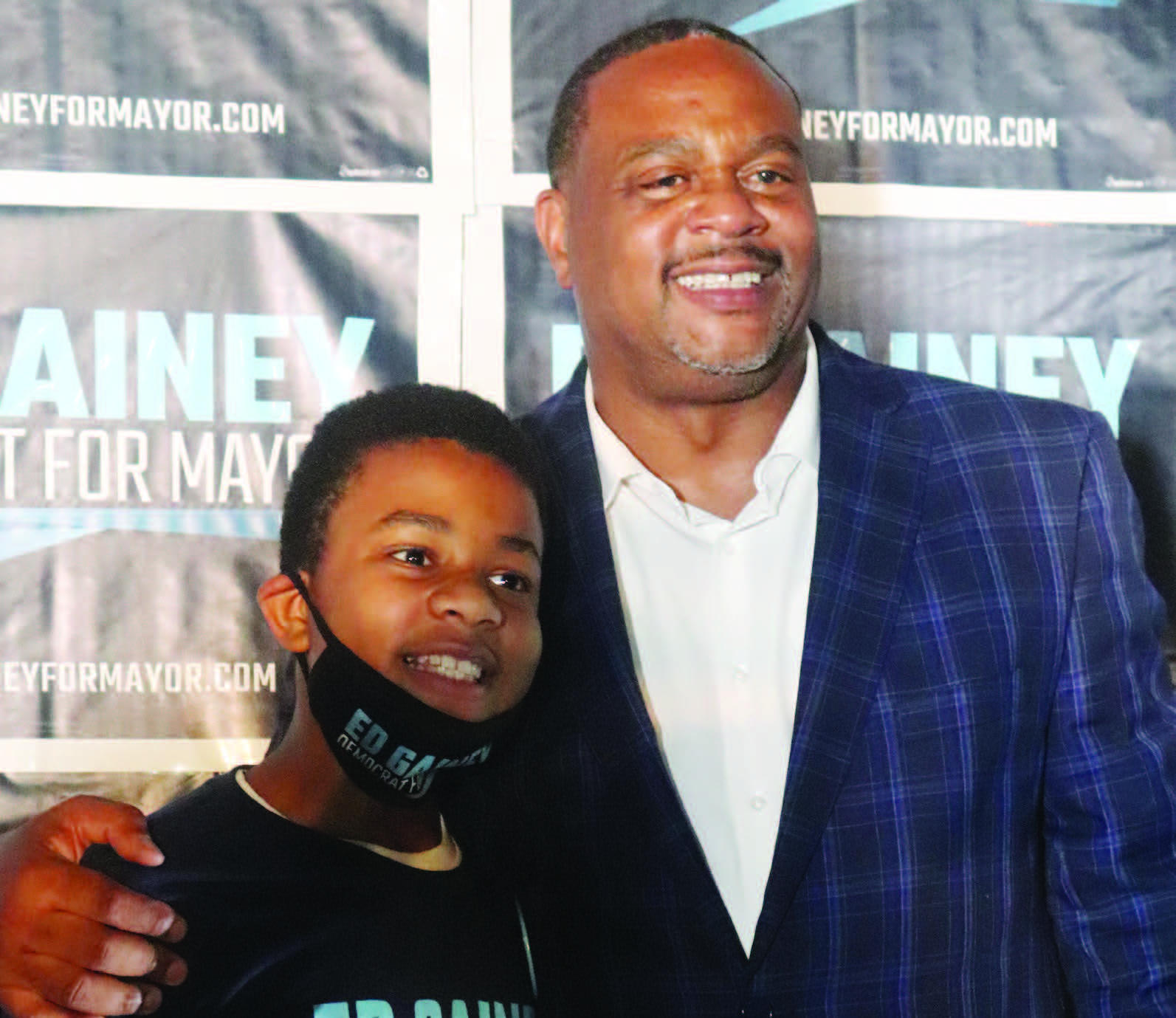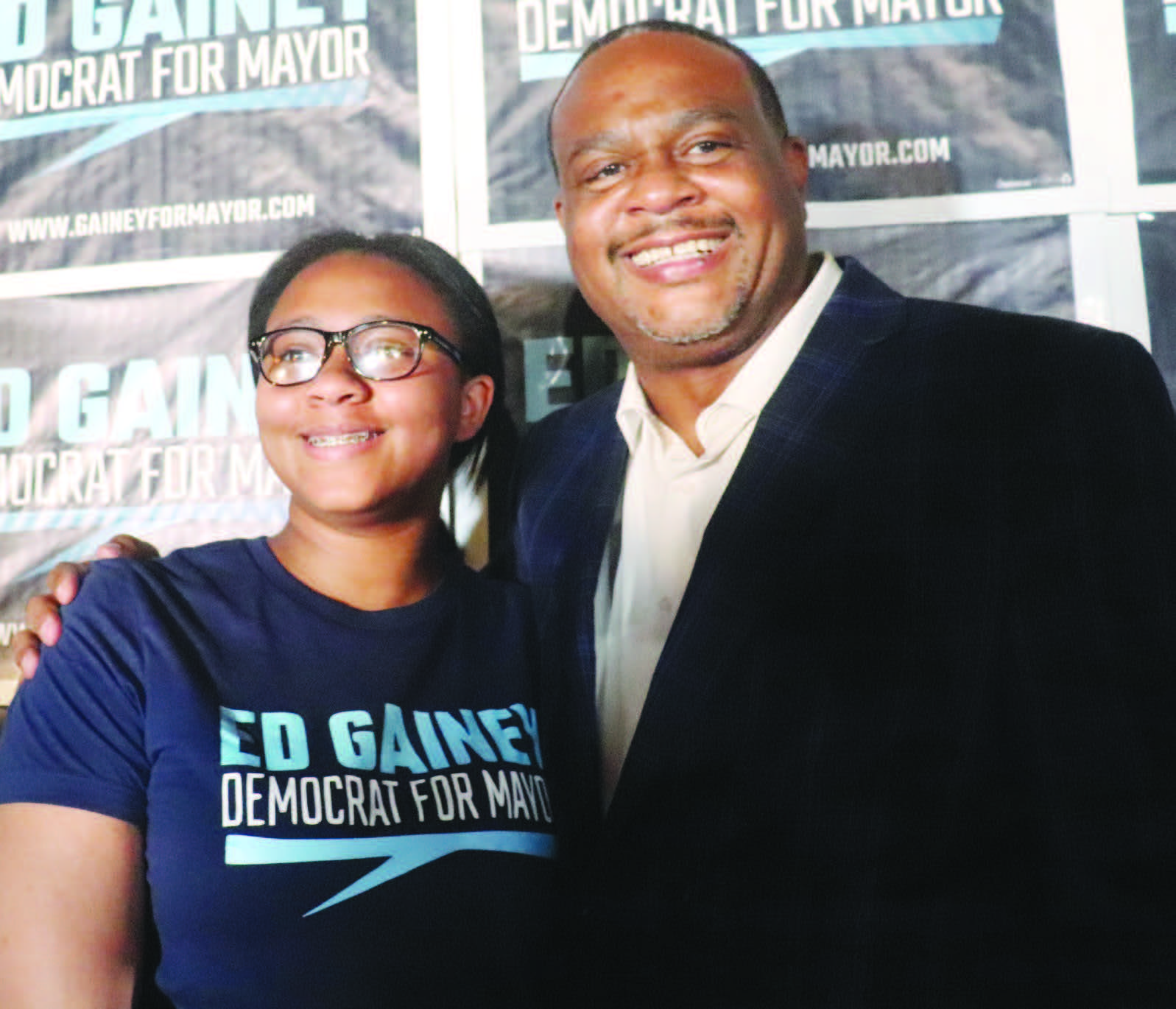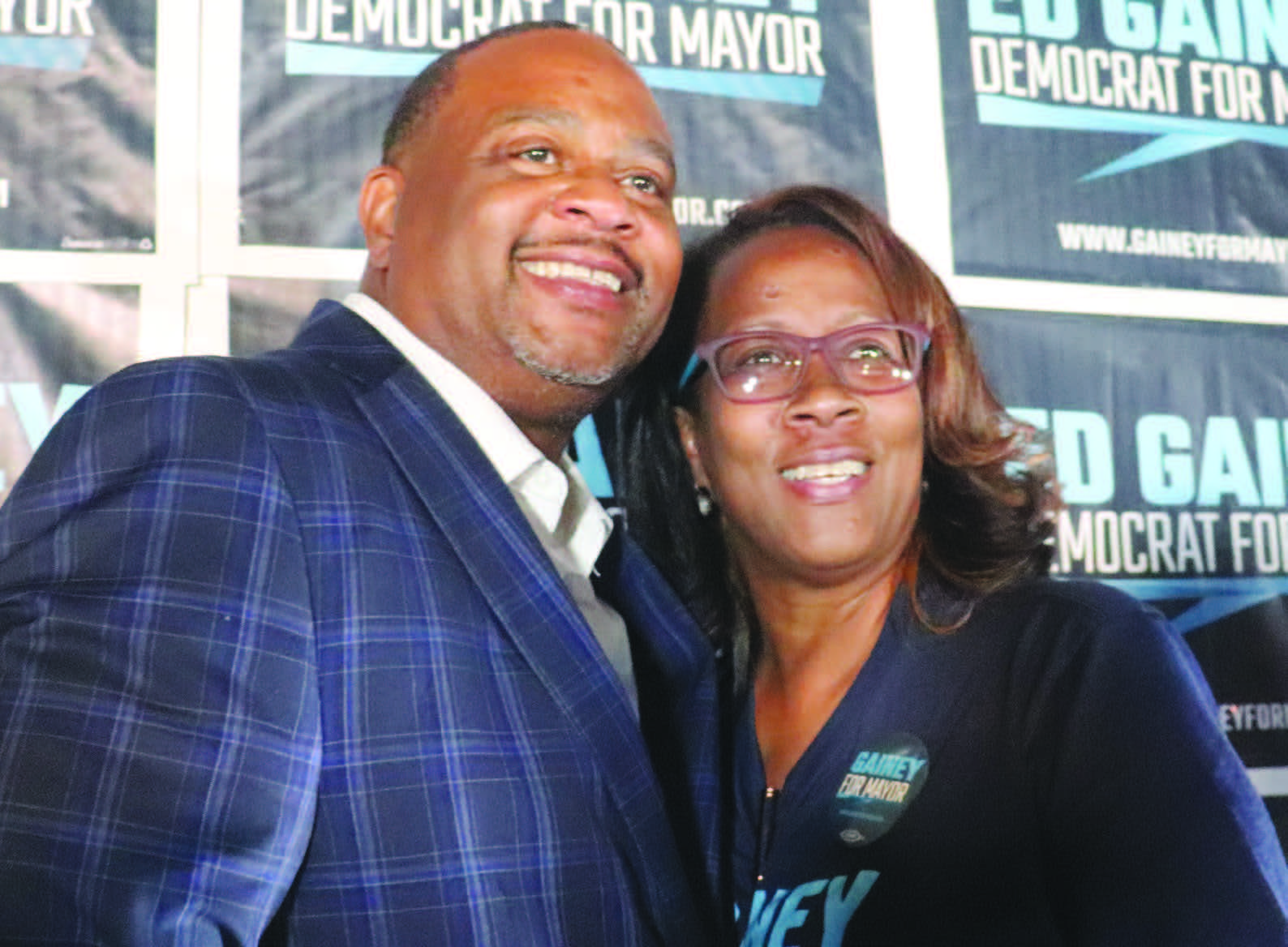STATE REP. ED GAINEY gives a kiss to his mother, Darlene Craig, moments after learning he had won the Democratic mayoral primary over two-time incumbent Mayor Bill Peduto, May 18. Representative Gainey almost assuredly will become Pittsburgh’s first Black mayor after the November general election. (Photo by Rob Taylor Jr.)
by Rob Taylor Jr.
Courier Staff Writer
Black Political Empowerment Project Chairman and CEO Tim Stevens, for as long as he’s been a Pittsburgh resident, for as long as he’s fought the good fight to improve conditions for African Americans in Pittsburgh, admitted to the New Pittsburgh Courier that he “was wondering if this would ever happen, while I’m still on the planet.”
The “this” that he was referring to was “Pittsburgh having a Black mayor.”
Well, barring the overly-Democratic City of Pittsburgh somehow turning into a Republican stronghold in five months, or an Independent candidate somehow emerging from the dust to muster up tens of thousands of supporters by November, Pittsburgh will have its first Black mayor—Ed Gainey.
Pittsburgh, for all its high rankings nationally as “The Most Livable City,” according to some publications over the years, was eons behind when it came to a Black person leading the city.
Minneapolis, Minnesota, which has never been an African American hub, and has less than 20 percent African Americans in the city now, had its first Black mayor in 1994, Sharon Sayles Belton. She served until 2001. In Columbus, Ohio, its residents finally elected the first Black mayor there, Michael Coleman, in 2000. He served in the position for 16 years. Columbus has more African Americans than Minneapolis, but the percentage is less than 30. Seattle, Washington, one of the more liberal cities in the U.S., elected its first Black mayor, Norman Rice, in 1990. He served two full terms.
Other places across America with small Black populations have elected Black mayors, including Des Moines, Iowa (1997, Preston Daniels), and Tacoma, Washington (1987, Harold Moss).
Pittsburgh apparently didn’t get the memo until May 18, 2021, that it’s OK for the Steel City to have a Black mayor.
Stevens told the Courier exclusively on May 25 that Rep. Gainey was aided by his experience in the political system. He’s been in the Pa. Legislature for eight years and formerly worked in Pittsburgh’s Mayor’s Office.
Also, Stevens said, “he was community-oriented as a human being and as a politician. I think most people would agree with that. He was omnipresent at community events over the years, very approachable.”
Stevens thought Pittsburgh had its best chance to elect a Black mayor 32 years ago, when attorney and noted civil rights leader Byrd R. Brown ran for mayor. Stevens, recalling that 1989 mayoral election, said that “many people perceived Byrd as possibly the most qualified candidate of all the candidates at the time; a Yale graduate, pretty much known as a brilliant guy. But it didn’t happen.”
During the May 1989 Democratic mayoral primary, self-described “Jewish grandmother” Sophie Masloff won with 28 percent of the vote, followed by Tom Murphy (23 percent). Frank Lucchino had 21 percent, and Brown garnered about 10 percent.
But Stevens said that things are different in today’s landscape. George Floyd’s death put a permanent spotlight on police brutality against African Americans in this country, and there were voters of all races who felt that Rep. Gainey would be best suited to improve police/community relations in Pittsburgh. Add to it the endorsement for Rep. Gainey from the Allegheny County Democratic Committee, which Rep. Gainey said spoke “volumes.”
Representative Gainey also resonated with local voters on affordable housing, where African Americans have been displaced from areas like East Liberty in favor of new commercial buildings and luxury apartments that cost “an arm and a leg” to rent.
And just before Stevens concluded his interview with the Courier about Rep. Gainey’s historic Democratic mayoral victory, he gave one more reason as to why Rep. Gainey was victorious.
“I think some people just thought, as far as having a Black mayor in Pittsburgh, it was about time.”
MAY 18, 2021—A DATE THAT WILL LIVE IN PITTSBURGH HISTORY FOREVER
ED GAINEY WINS PITTSBURGH DEMOCRATIC MAYORAL PRIMARY, PRIMING HIM TO BECOME CITY’S FIRST BLACK MAYOR
(Photos by Courier photographer Rob Taylor Jr.)




STATE REP. ED GAINEY, SON DARIUS (Photos by Courier photographer Rob Taylor Jr.)

STATE REP. ED GAINEY, DAUGHTER ALEXA

STATE REP. ED GAINEY, DAUGHTER MARIAH PEOPLES

STATE REP. ED GAINEY, WIFE MICHELLE